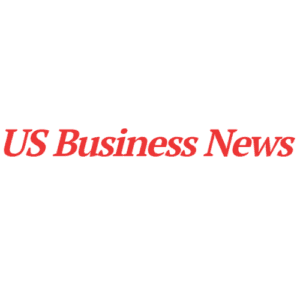[ad_1]
Northwell Health is sending 22 palettes of medical and disaster relief supplies to regions in Syria and Turkey that were devastated by the 7.8 magnitude earthquake last month. The earthquake left more than 48,000 dead and millions displaced in a disaster that compounded by high-magnitude aftershocks in the areas, including a 5.6 magnitude last week.
“We’re all part of one global family,” Michael Dowling, president and CEO of Northwell Health, said in a statement. “And when there’s one part of the family in severe distress, we as a healthcare organization have to be concerned about people in other parts of the world.”
Northwell has sent palettes of relief supplies previously, including a year ago to Ukraine, after Russia had invaded its neighbor. Now, in the Turkey-Syria relief effort, Northwell gathered team members gathered with the Republic of Turkey Consul General Reyhan Ozgur at the health system’s distribution center in Bethpage on Friday to discuss the supplies going to that region.
The health system is partnering with Medshare to transport supplies from New York into the affected regions. Northwell’s Center for Global Health is networking with local leaders on the ground to fund relief efforts where they’ll make the greatest impact.
In this effort, Northwell is working with international partners that include Médecins Sans Frontières – known in the United States as Doctors Without Borders – to provide direct medical care to survivors and people in need of basic care.
“We are gathering specialized supplies that are difficult to procure locally, things like dialysis kits, trauma supplies that are now already strained in Europe because of the war in Ukraine,” Dr. Eric Cioe Peña, director of the Center for Global Health, said in a statement.
A Northwell Health Turkey-Syria relief fund was created to bring direct equitable financial support to the disaster areas.
Abit Soylu is a Northwell paramedic, whose family lives in Turkey, lost his cousin and her son when their home collapsed in the initial earthquake.
“It’s hard for me because I’m not there and I’m heartbroken here not being able to help them,” he said in a statement. “It took five days for them to find them in the rubble.”
Other employees at the Bethpage warehouse included Amen Alhadi, a flight paramedic with Helicopter Emergency Medical Services, who has family in Syria, and Dr. Anas Sawas, an emergency medicine physician at Mather Hospital in Port Jefferson, who spoke about the limited humanitarian access into Syria from the civil war, now strained by the earthquake.
Also at the event were Dr. Onat Akin, a Northwell pathologist with family in Turkey, and Dr. Banu Aygun, a pediatric oncologist at Cohen Children’s Medical Center. They said children in the region are now at medical risk because of a lack of access to care and clean water. Scabies and cholera can spread quickly and other illness from lack of vaccinations.
“Aside from losing their homes, their schools, their friends, some of them are unfortunately orphans,” Aygun said in a statement. “The physical scars are very big, but the psychological scars are much deeper.”
Northwell aims to replicate the relief efforts it brought to Ukraine to the areas devastated by the earthquake.
“We’re a culturally dynamic health system,” Peña said. “Like in Ukraine, working with MSF and our teammates that hail from these regions will help us build sustainable relationships to get materials and funds to the right place and care for more people.”
Northwell Health deployed its integrated telehealth service to provide 24/7 assistance to healthcare providers in Ukraine to consult and offer guidance on civilian and military patient care. The program provided more than 350 consults to clinicians caring for patients of blast injury and gunfire, to women with perinatal care needs and patients awaiting organ transplant.
“When we launched this program, we quickly realized that using this as a peer-to-peer platform offered the most benefit and impact to the medical community in Ukraine,” Peña said.
It’s the kind of support that would go a long way in Turkey and Syria.
“We have an obligation and responsibility,” Dowling said. “It’s part of the culture of Northwell. Any time anyone is in trouble – whether it’s domestic or overseas – we do our best to help.
“If we have the ability and the resources to help – and we obviously have the will – then we should help,” Dowling said. “That’s why we’re in the health care business. We can’t always be looking internal – we have to look external. It’s something we’ve always done, it’s something we always do.”
To donate and support the Northwell Health CGH Turkey/Relief fund visit: https://support.northwell.edu/center-for-global-health
[ad_2]
Source link
